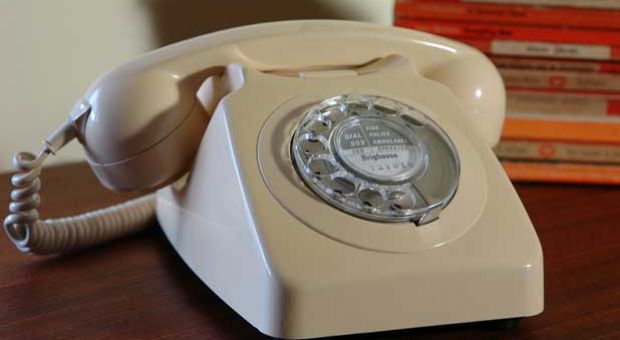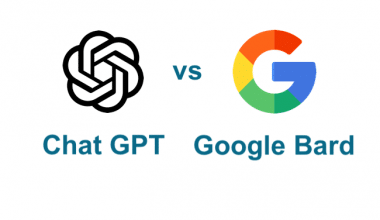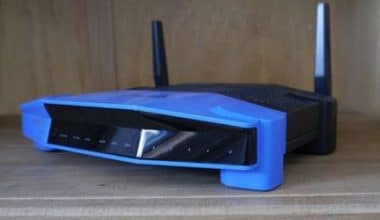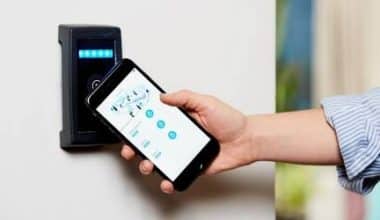Landline phone service is still important for both homes and businesses because it is reliable, secure, and has great call quality. In fact, more than 44% of households in the United States still use a landline phone. So, if you’re looking for the best senior landline phone services provider and how to block landline phones number, you’ve come to the right place.
Landline Phone Services
Despite the fact that almost everyone now has cell service, landline home phones are still useful. When cell towers are scarce, a landline can provide reliable access, especially in rural areas. In some cases, you can even combine your phone service with internet access. But which landline home phone service provider is the best? This guide discusses the advantages and disadvantages of the five best options so you can select the best landline for your household.
Best Landline Phones
#1. Vonage
In addition to offering some international calling plans, which are not always available from other landline home phone service providers, Vonage offers a nice variety of plans at reasonable entry prices. If you make a lot of international calls, Vonage might not be the best option because it only offers programs with a maximum of 400 minutes before standard rates apply.
Pros
- Equipment included
- Some packages include international minutes.
- Plan adaptability
Cons
- Several customers have complained about poor customer service.
- You will require the Vonage Extensions App to answer calls to your Vonage phone from practically any place.
- Extra minutes over the plan allowance are charged at $0.05 per minute.
#2. Community Phone
For individuals who don’t need or desire an internet connection, Community Phone is a good option. To connect to towers close to home, Community Phone employs a landline base and cell signals. If you like, you can keep your current phone number. Community Phone features a battery backup and costs $32 monthly, so you can keep using it even if the power goes out.
Community Phone does not support medical alerts or home security systems, which may still require landline connections even though many can connect via the internet. The landline base requires a $99 deposit and is not compatible with these devices.
Pros
- It has a backup battery in case the power goes out.
- It does not require an internet connection.
- There are no contracts.
Cons
- Equipment costs $99
- There is no caller ID.
- International calls not included
#3. Spectrum by Charter
Spectrum by Charter offers some alternatives for bundling phone service with internet and TV service. They do not offer phone service on its alone, however, when combined with the internet, you can get phone service for $14.99 per month. Spectrum has no contracts, which is convenient if you decide to discontinue service, and international calling is simply $5 more a month.
Pros
- The cost of international calls2
- Will buyout agreements of up to $500
- No contract required
Cons
- Has to be bundled
- More pricey than rivals
- Poor customer service reputation
#4. Frontier
Frontier charges roughly $50 per month for phone service, depending on location and incentives. They do not require users to sign a contract and offers certain unique benefits. In most circumstances, phone service and internet access are combined. Frontier claims that you do not require Frontier internet in order to use a landline, however, this is debatable.
Frontier does not provide any costly plans, and international call packages are available individually. Discovering pricing and plan specifics can be difficult, but Frontier will show you what’s available in your area when you input your address. In rare instances, you may be eligible for a free router.
Pros
- Price
- There is no contract.
- Nomorobo service that prevents robocalls
Cons
- An activation cost of $85
- Limited availability
- International calling plans are sold separately.
#5. Xfinity by Comcast
Xfinity launched in 2010 as Comcast Communication’s internet provider. The company is the nation’s largest cable provider and is available in 41 states. Xfinity made Forbes’ list of the best internet providers this year, and it also takes the top spot as the cheapest provider for value pricing without having a commitment.
With an introductory price of $29.99 per month for the first two years and a maximum promised download speed of 75 Mbps for the cheapest plan, Xfinity service delivers plenty of bandwidth for families or individuals with a few devices that don’t consume tremendous quantities of data. For convenience, Comcast can also provide your home with television, phone, and security services at moderately discounted pricing, all through one company.
Pros
- Low rates
- Some plans offer international calling.
- There are no contracts.
Cons
- The cost of professional installation is $100.
- Equipment costs
- Monthly charges for international calls
How to Choose a Landline Phones Service?
This is a fast checklist to complete if you’re looking to shortlist landline phone service providers:
#1. Calling plans
While selecting a landline phone service, you should always look at the calling plans because prices and features might vary greatly. Some providers, for example, may offer unlimited local and long-distance calling, but others may offer multiple packages with varying minute allotments. You should also examine whether you require call waiting, caller ID, or other features. You can get the value for your needs by shopping around and comparing plans.
#2. Call functions
When choosing the best landline phone service, call features must be considered. Not all providers have the same calling services, so make sure the one you choose has all the bells and whistles you require. Caller ID, call waiting, voicemail, and conference calling are some of the most crucial features. Furthermore, some carriers provide unique capabilities such as call forwarding or three-way calling that you may require.
#3. Dependability
Before signing up for a landline phone service, there are a few reasons why you might want to check its dependability. The reliability of landline services varies, just like that of cell phone services. As a result, you must carefully weigh your options. Another argument is that if there is a power outage, your landline service will continue to function, however, your cell phone service will not. Always evaluate the dependability of your home phone plan provider before committing.
#4. Customer Service
Another factor to consider when selecting the best phone landline service provider is efficient customer service. You don’t want to be trapped in the middle with no help, so choose the best home phone plan with good customer service.
#5. Dependencies (primarily stable internet connection)
A landline phone service must also reflect its dependencies. Furthermore, some providers may only provide service in certain areas or require you to have an existing broadband internet connection with them in order to receive landline phone service. You can avoid signing up for a landline phone service that isn’t available in your area by checking for service dependencies ahead of time.
Senior Landline Phone
Hundreds of landline phones with varied characteristics are available on the market, making it difficult to select the finest phone for yourself or a loved one. Community Phone spent 16 hours researching and testing 23 landline phones to produce the best senior landline phone. Continue reading to find out more!
#1. VTech SN5147
The VTech SN5147 is an ideal phone for folks who want to block unsolicited calls. Up to 1,000 numbers can be permanently blocked with just one touch on the phone. Robocalls can also be blocked from ringing your phone. These, however, are manual methods of stopping unsolicited calls.
#2. Panasonic’s KX-TGD833W Cordless Landline Phone
The Panasonic KX-TGD833W is a cordless landline phone with a number of convenient features. It is one of the best landline phones for seniors.
The phone has an audible function that notifies you of incoming calls as well as a call blocker that allows you to block unwanted calls. Combine this with the Community Phone spam filter, which automatically blocks unsolicited calls before your phone rings, for maximum fraud protection.
#3. Panasonic – KX-TGC352B
If you’re searching for a low-cost, feature-rich cordless phone, the Panasonic KX-TGC352B is a fantastic option.
The DECT 6.0 digital technology provides crisp sound, and the call waiting, caller ID, and conference functions help you stay connected.
#4. Ornin T112 Trimline
The Ornlin T112 Trimline is a corded telephone with several desirable characteristics for a house phone.
One of the most useful features of this phone is the caller ID, which allows you to know who is calling. For those who prefer not to hold the phone while speaking, it can be wall-mounted.
#5. Future Call (FC-0613) Senior Picture Phone
A suitable option for people with hearing loss or vision impairments is the Future Call (FC-0613), a landline phone with bigger buttons and an amplified speakerphone.
It also offers one-touch dialing for convenience. It does not, however, offer caller ID or voicemail and cannot be wall-mounted.
How to Block a Landline Phone Number
There are a few methods to block a phone number on your landline phone, but the majority of them need you to first receive the call. Before they even pick up the phone, customers want to have spam calls blocked. With Community Phone spam call blocking, you can do just that.
Most landline phone providers don’t provide spam call blocking for their customers. They only offer one type of spam call blocking: blocking a number after you get the call. In general, these providers recommend using the *60 code, as indicated below:
- Pick up your phone and dial *60.
- You will hear a message instructing you on how to block a phone number.
- Dial #01# 4 to block the most recent call.
- Dial # followed by the number (including the area code), followed by # to block another number.
This type of spam call blocking is handled slightly differently by different providers, as detailed below. *60 will block that number from phoning you again. The *60 approach, however, only allows you to enter a total of 12 numbers.
Given that the majority of customers receive more than 12 spam calls per week, *60 is not a sustainable option. Instead of allowing you to manually block spam calls one at a time after they arrive, a good spam call blocker would prevent them from reaching you in the first place.
The Do Not Call register was designed to accomplish this. Telemarketers are not permitted to phone numbers on the registry. Yet, the legislation is inadequately implemented, particularly abroad, where the majority of spam calls originate. It also does not function against the vast majority of robocalls, which constitute the vast bulk of spam calls nowadays.
What Are Landline Phones Used For?
Historically, a landline is a telephone connection that uses analog technology, such as copper wires or fiber optic cables, to complete calls. To connect with the other caller, your voice travels via a physical line.
What Is the Difference Between a Landline and a Mobile Phone?
Cell phones use wireless technology, whereas landlines use electrical currents to transmit your voice to the receiver.
How Much Do Landline Phones Cost?
The cost of a landline will vary depending on the service provider and the features included. Nonetheless, it may cost between $20 and $60 each month.
Why Did People Stop Using Landlines?
According to telecommunications specialists, the change from landline to wireless is not surprising for several reasons: Cell phones can now do more than landline phones; cell service quality and connection have improved; many people who grew up in the age of cell phones and data plans have never had to use a landline phone.
What Are the Types of Landline Phones?
Landline phones can be of two different types. A corded landline connects to the provider’s wiring via a wall jack. There is a cord connecting the phone base and the receiver (or handset). The handset is connected wirelessly to a cordless landline, while the phone base is connected to the cable through a jack.
What Is a Landline Phone Number Example?
The typical telephone number in the United States is ten digits long, such as (555) 555-1234. The first three digits are the “area code,” which previously indicated where the phone was located in the country.
Conclusion
By now you should have a fair notion of whether or not landline home phone service is ideal for you. Investigate the advantages of landlines, locate the best phone service providers in your area by ZIP code, and explore their home phone features. Don’t forget to consider whether you only require local phone service, international call rates, or low-cost cable and internet bundles.
Next, examine landline options such as VoIP service providers and low-cost cell phone plans. These solutions may make it more inexpensive and sensible to replace your landline completely.
Related Articles
- WORK PHONE: Meaning, How It Works & Number
- 7+ Best BUSINESS PHONE SYSTEMS INTERNET in 2023
- LANDLINE BUSINESS PHONE SYSTEMS: Best Options in 2023
- TEXTING SPAM: Meaning, Examples & How to Stop It
- The Best 15 Cordless Business Phone Systems in 2023






